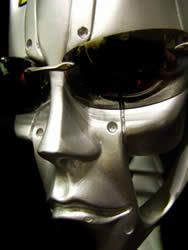Black Gold, Cool Tinsel
 I’ve been reading the best book I’ve ever found on cross-cultural belonging. Ekow Eshun is an Englishman of Ghanaian ancestry, and his book Black Gold of the Sun recounts a journey he took to Ghana, looking for … something. He spends half the trip trying to figure out exactly what it was he was looking for, and the other half learning things about his family he wasn’t expecting.
I’ve been reading the best book I’ve ever found on cross-cultural belonging. Ekow Eshun is an Englishman of Ghanaian ancestry, and his book Black Gold of the Sun recounts a journey he took to Ghana, looking for … something. He spends half the trip trying to figure out exactly what it was he was looking for, and the other half learning things about his family he wasn’t expecting.What pushes Black Gold of the Sun beyond the level of travel literature and memoir is his cultural criticisms of the meaning of British blackness, especially British Africanness contrasted with British West Indianness and African-Americanness. The sounds of his childhood were American, African American. Eshun was the son of Ghanaian diplomats, but most African Americans are the descendents of West African slaves. Still, it is the African Americans who managed to create a critical consciousness of blackness in England.
Eshun spent much of his childhood—lived among racist white kids and worse Jamaican kids—wondering where he came from. When he went to college, he discovered the use of cool to bury it all:
Many students try to cut a dash through their first year with the help of an experimental haircut, a new-found political conviction, or some other affectation … Everyone was looking for a new identity.Eshun develops this thought then concludes:
As for me, I favoured omission rather than reinvention. By shrugging off queries about where I’d grown up or gone to school, I realized I could erase the past. Even the question that had dogged me all through my life became unimportant.
‘Where you from, man?’
‘London.’
‘Cool.’
Not without pride did I consider myself as a self-made man; an outsider turned insider … I’d snubbed history and triumphed. That was the plan, anyway. Later, I realized that by denying the past I risked making myself its prisoner. By then it was too late, though. I’d already been trapped. … I’d spend most of my life afraid to get too close to anyone. At [University] I told myself I was being cool.
This notion - that cool is worse than a weak crutch, that it keeps us from living whole lives - lies at the center of my book.
 Author and Speaker
Author and Speaker
0 Comments:
Post a Comment
<< Home